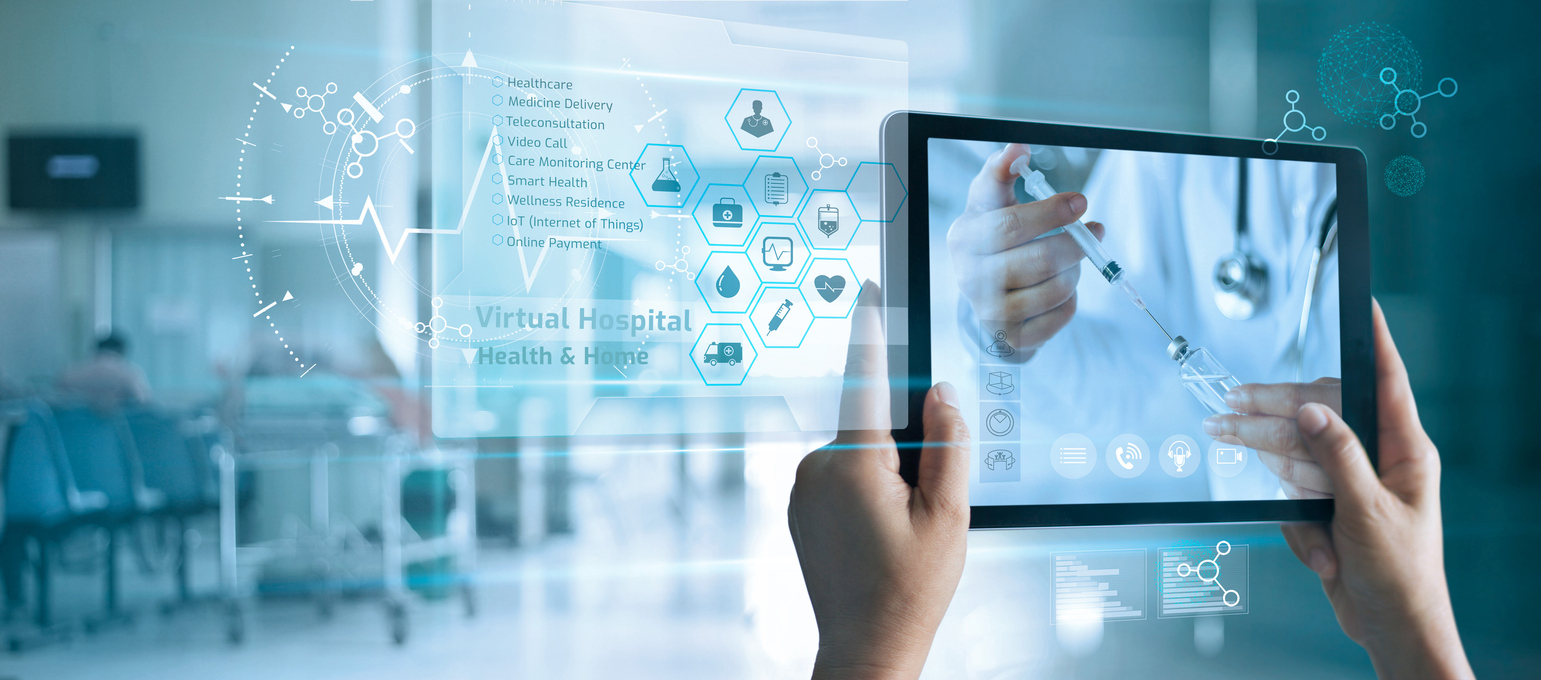It is an exciting time in medicine. Virtual reality, artificial intelligence, APIs, the cloud, smart devices and augmented reality are changing the way we deliver health care to enhance both practice and patient outcomes.
In this article based on a recent AGES society presentation by leading Obstetrician, Gynaecologist and Fertility Specialist, Dr Joseph Sgroi MBBS, FRANZCOG, we take a look at four key ways we are reimagining the future of healthcare through the power of technology.
1. Unlocking the power of better patient care with the cloud
Preparing for growth, reimagining how we deliver health care, and how we engage with our patients will be key moving forward. Along with this will be the inevitability of increased scrutiny across the sector, and the use of technology to help us dive deep into clinical data in terms of both patient experience and also patient outcomes.
The reasons for embracing technology, particularly in relation to cloud-based technologies, are many. The ability to engage a cloud-based platform, rather than a server-based platform, will allow medical practitioners to deliver more intelligent healthcare remotely in the future, and allow us to integrate with a whole range of hosts and a whole range of other providers, seamlessly.
Embracing this technology is going to drive down costs, find practice efficiencies, and allow us to have a lot more flexibility in our work practices with managers and staff, particularly.
Most importantly, cloud is already transforming patient engagement with better communication across patients, as well as allied health and other healthcare professionals surrounding the patient. Gone are the days of faxes and mail, we are engaging with our patients and GP referrers in a more fluid manner, saving time and energy in the process.
Most platforms, whether they're server-based or alternatively cloud-based, have Medicare links and so forth. However, cloud-based systems, like Clinic to Cloud, can also integrate via the API into business systems such as Xero, to give more oversight to a practice manager, and an individual clinician around business and billings. This is the beauty of cloud-based technology - you can just plug in ‘anyone and anything’ into the cloud and therefore extract data via a secure system to allow this free flow of information.
Already, we've established within Clinic to Cloud the ability for information to be sent from the doctor's rooms directly to hospitals, thereby decreasing the waste in terms of admin time. This is particularly important because hospitals want to make sure their utilisation is as high as it possibly can be.
2. Mobile apps and outcome-based patient care
A Patient Portal is going to be integral to more agile ways of care moving forward because the way we communicate with our patients is changing. We have the capacity to send data directly to the patient as a one-way form of communication, and the patient can also send data back to us, which we can view at the time of a clinical appointment or in an emergency.
Outcome-based health care is now vital. We should strive to make sure, as clinicians and as operating physicians, we actually deliver good outcomes. For example, pain scores following endometriosis surgery can be done via a patient survey directly via a patient app linked to doctor’s practice management software, so patients can report outcomes postoperatively. The data can be extracted with the ability to statistics on outcomes.
Using mobile cloud-based technology, integration of patient data such as inputting blood pressure or medication directly into a patient app, provides clinicians with an opportunity to engage with their patients and have more information at hand at the time of their appointment.
This allows us to provide information at the point of care easily and gives an insight into improving our patient care, and of course, the patient's journey.
In terms of practice management, this mobility means being able to do a birth record directly from your phone while still at the hospital, it means linking to billings from your phone, it also means post-operative reports via your iPhone or an iPad or directly from the hospital computer terminals on any browser, and being able to access imaging results, pathology results, in the palm of your hand, for the immediacy of care no matter where you are located.
The ability for the cloud platforms to plug into other well-established cloud-based products means you can get this integrated system all in one. For obstetrics, we're in the process of integrating with iCOPE, to get an integrated depression score done by the patient viewable as soon as the patient has completed it.
3. Artificial intelligence and predictive analytics
AI, data analytics and predictive analytics are set to become serious game-changers in the way we manage clinical decision-making. Most are already reasonably familiar with how AI is being utilised in radiology by providing radiologists with a decision support tool. Importantly, the machine is not there to make the decision for you, the machine is there to aid in the decision process.
For example, the Risk of Malignancy Index for ovarian pathology. All the information is within Clinic to Cloud , the imaging results have already been accepted into the system, the pathology result has already been inputted into the system. And of course you add the demographics and a quick calculation can then suggest a management stream.
And then it's up to the clinician to accept or reject the suggestion. This drives a better patient experience, improves medico-legal aspects and compliance, and also makes sure the patient receives informed consent, but moreover, it reduces the administrative burden on the practitioner.
4. Automation and efficiency in healthcare
In the future, the most important thing will be the ability to be able to audit our outcomes in terms of surgical performance using business intelligence. For example, when you book a surgery, this sets off automated processes like sending off financial and medical consents to the patient. The patient accepts it on their app, they acknowledge the consent from a medical and legal point of view and acknowledge the risks.
The patient is placed on a waitlist, the patient can reject or accept the waitlist, and the verification goes through to the health fund.
Secretarial staff will then book a patient to the hospital date, automatically the hospital gets notified, the surgical assistant gets notified, so no one needs to send out emails and no information is missed. The patient acknowledges and confirms the date, the doctor can set up your own parameters in terms of a preoperative checklist to go out to the patient, the patient again can review and reaffirm their consent.
Clinic to Cloud is soon to introduce integration with Stripe, which will allow the capacity to automatically bill. So as soon as you bill a 104 or 105, the item number and its value will be automatically billed and processed through Medicare with the invoice sent to the patient via the patient portal. In future development, a patient app will replicate a users experience when exiting an Uber. The patient can pay online and the invoice will automatically proceed for claiming. This will save administrative time, as well as reduce the possibility of error.
Prepare for digital transformation or get left behind
Moving forward, technology will only become more advanced in this sector, so we must be prepared. We will see the kind of data and business insights you would expect in terms of financial data, but for surgical outcomes.
Legally, we're going to need to be able to justify the work we do as well, and what those outcomes are, and the better ways we can present it. Those little subtle things may ‘seem silly’, but the ability for us to be able to do all this will result in major improvements for doctors, patients, and practices.
Read more about how Dr Sgroi is transforming his own private practice through the power of cloud here.




